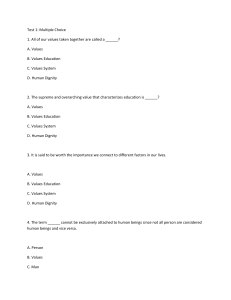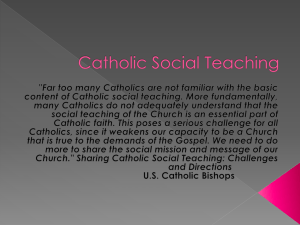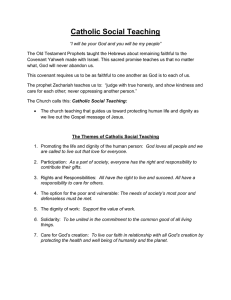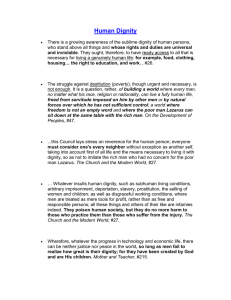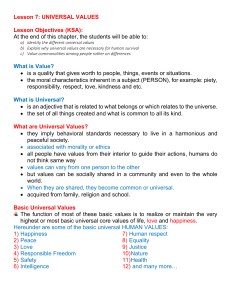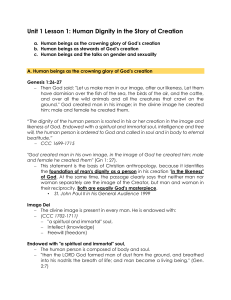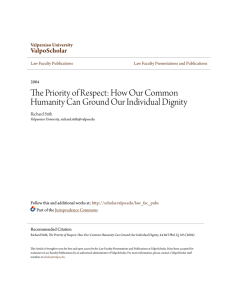The Seven Principles of Catholic Social Justice Teaching
advertisement
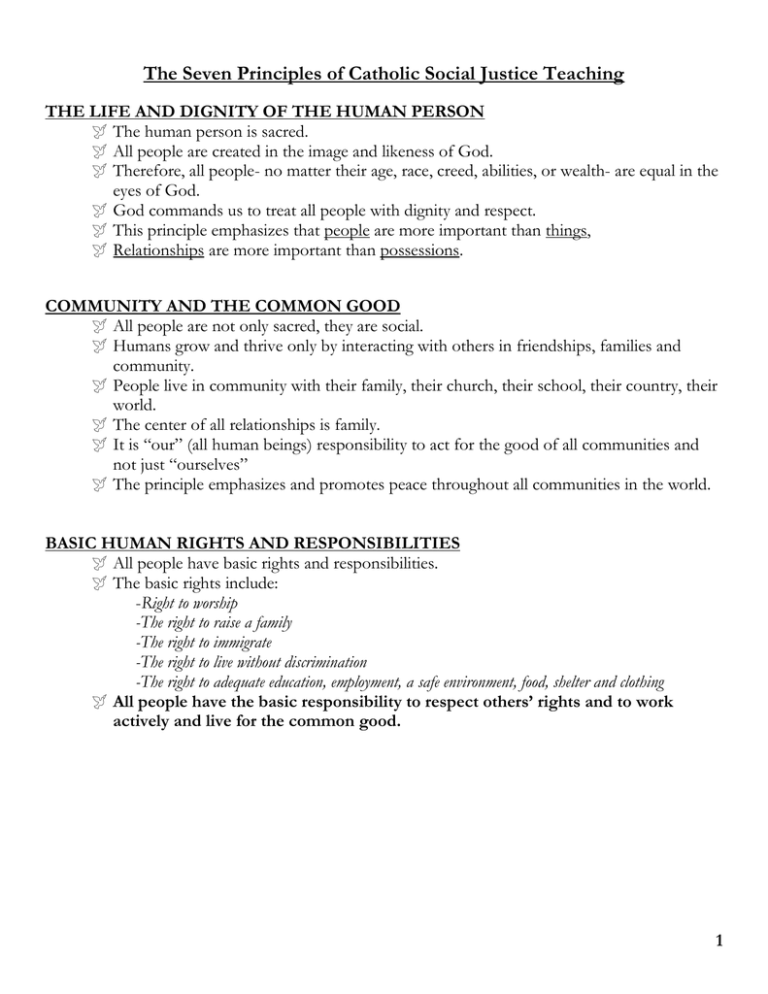
The Seven Principles of Catholic Social Justice Teaching THE LIFE AND DIGNITY OF THE HUMAN PERSON The human person is sacred. All people are created in the image and likeness of God. Therefore, all people- no matter their age, race, creed, abilities, or wealth- are equal in the eyes of God. God commands us to treat all people with dignity and respect. This principle emphasizes that people are more important than things, Relationships are more important than possessions. COMMUNITY AND THE COMMON GOOD All people are not only sacred, they are social. Humans grow and thrive only by interacting with others in friendships, families and community. People live in community with their family, their church, their school, their country, their world. The center of all relationships is family. It is “our” (all human beings) responsibility to act for the good of all communities and not just “ourselves” The principle emphasizes and promotes peace throughout all communities in the world. BASIC HUMAN RIGHTS AND RESPONSIBILITIES All people have basic rights and responsibilities. The basic rights include: -Right to worship -The right to raise a family -The right to immigrate -The right to live without discrimination -The right to adequate education, employment, a safe environment, food, shelter and clothing All people have the basic responsibility to respect others’ rights and to work actively and live for the common good. 1 THE OPTION FOR THE POOR AND VULNERABLE The Church calls all of us (human beings) to defend and promote the dignity of the least among us. We are called as Christians to respond to the needs of all our brothers and sisters, especially those with the greatest needs. We fulfill this obligation only by practicing both acts of charity and social justice that encourage society to meet all people’s basic needs. THE DIGNITY OF WORK AND THE RIGHTS OF WORKERS Catholic teaching holds that every person has the right to work as a way of contributing with dignity to God’s creation. Therefore, all workers should be treated with respect, receive fair wages, and have a chance for advancement. The church supports workers’ rights to join unions and associations. The economy exists to serve people, not the other way around. SOLIDARITY We (as human beings) are all one human family regardless of race, nationality, or religion. We are called to look on all people as neighbors, not enemies. We are obligated to work for peace and justice globally. CARE FOR CREATION The goods of this world are meant to be shared by all. We are called to respect and take care of our Earth, including preserving the Earth for future. 2
